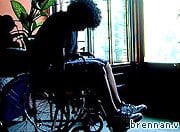A euthanasia bill in Western Australia which would have “turned doctors from being healers and carers into killers” has been defeated.
The private members bill would have allowed Western Australians over the age of 21, with a terminal illness and who were deemed to have a sound mind, to ask a doctor to end their life.
But after MPs in the state parliament debated the bill, brought forward by Greens MP Robin Chapple, it was defeated by 24 votes to eleven.
Decisive
The Premier of Western Australia, Colin Barnett, said he believed the result probably reflected the views of its citizens.
Pro-family group FamilyVoice Australia welcomed the result with Richard Egan, its national policy officer, saying: “While the bill would initially have applied only to the apparently terminally ill, Mr Chapple admitted during the parliamentary debate that he considered that this was just a ‘good start'”.
He commented: “When parliaments in Australia and elsewhere have looked carefully at euthanasia proposals, they have rejected them as too dangerous.
“We hope the decisive defeat of this bill in Western Australia will help secure the resounding defeat of similar proposals in Tasmania, South Australia, New South Wales and the Commonwealth”.
Vulnerable
Mr Egan also commented that the laws that govern Australia’s society are based on Biblical principles which protect all, and especially the lives of “the weakest and most vulnerable: the elderly, the disabled, the isolated and the depressed”.
Last week it emerged that a television and billboard advertising campaign for the pro-euthanasia group Exit International, which is headed by Dr Philip Nitschke, had been banned in Australia.
Dr Nitschke, nicknamed Dr Death, successfully campaigned in Australia’s Northern Territory to legalise euthanasia there in the 1990s. However the law was overturned by the federal government nine months later.
Banned
Exit’s TV advert shows an ill-looking man explaining he has a terminal illness and declaring: “I’ve made my final choice. I just need the Government to listen”.
The TV advert was banned on the ground that it breached the Commercial Television Industry code of practice on “the promotion or encouragement of suicide” and the billboard ad fell foul of New South Wales’ Crimes Act.


